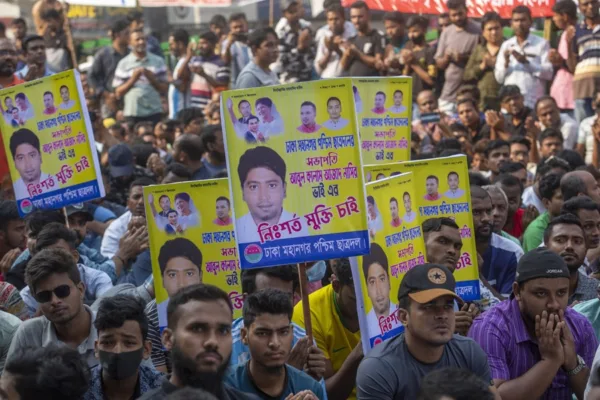For decades, there has been a persistently deteriorating situation of human rights in Bangladesh. Now, however, the gravity of the circumstances has come under the spotlight more than ever with the recent national elections.
What is the situation in Bangladesh?
On January 7, national elections were held in Bangladesh for the 12th parliament, referred to as “Jatiyo Sangsad,” where votes were cast. For context, there are three main political parties in Bangladesh: the Bangladesh Nationalist Party (BNP), Bangladesh Awami League and the Jatiya Party.
The Awami Party, in office since 2009, is identified as a left-wing political party. During their over 10 years in power, they have faced numerous accusations of human rights violations. Individuals openly expressing dissent against the present government run the risk of arrest or, in more severe cases, even losing their lives.
What has the current government been accused of?
An accusation that has garnered attention, notably from Amnesty International, pertains to the torture and ill-treatment of prisoners. According to the international organization, civil society groups such as Odhikar and ASK have independently estimated 54 alleged deaths in custody during the initial nine months of 2022. This only led to multiple protests throughout the country.

It should also be highlighted that the Awami government passed a bill on the 23rd of October “the Ansar Battalion Bill” that allows a paramilitary auxiliary force (the “Ansar”) to enter the homes of suspects, arrest, detain, and hand over alleged offenders to the police. Some allege that this bill was passed to guarantee a fourth term in government.
Furthermore, previous records during the times of the 2018 general elections showed signs of repression. Amnesty International has investigated and documented a clear pattern of enforced disappearance followed by extrajudicial executions by the Rapid Action Battalion (RAB) which reportedly killed at least 466 people under the guise of an anti-drug campaign in 2018.
The stability of the government also influences the accountability that the state can have and address other human rights issues that Bangladesh is facing. These include a lack of protection for refugees & women, lack of access to education, livelihood, etc.
What happened during the elections?
On election day, numerous voters opted to boycott the polls, prompted by allegations of past fraud raised by the main opposition party. By 3pm local time, the voter turnout had reached approximately 27 percent, as reported by Jahangir Alam, the secretary of Bangladesh’s election commission. In the end, Prime Minister Sheikh Hasina won a fifth consecutive term.
What has been the international reaction?
However, the United States and some European countries have taken increasingly confrontational stances with the Prime Minister of Bangladesh over her authoritarian decisions. Washington has introduced sanctions targeting both human rights violations and the allegation of election interference.
Analysts are also watching for international reaction, amid widespread speculation that the US — the biggest destination for Bangladesh’s garment exports — could implement further penalties after the polls if it concludes they were unfair. Before the elections, The US had already stated that it would impose visa restrictions on Bangladeshi individuals responsible for, or complicit in, undermining the democratic election process in Bangladesh.”
Photo by: The Statesman







